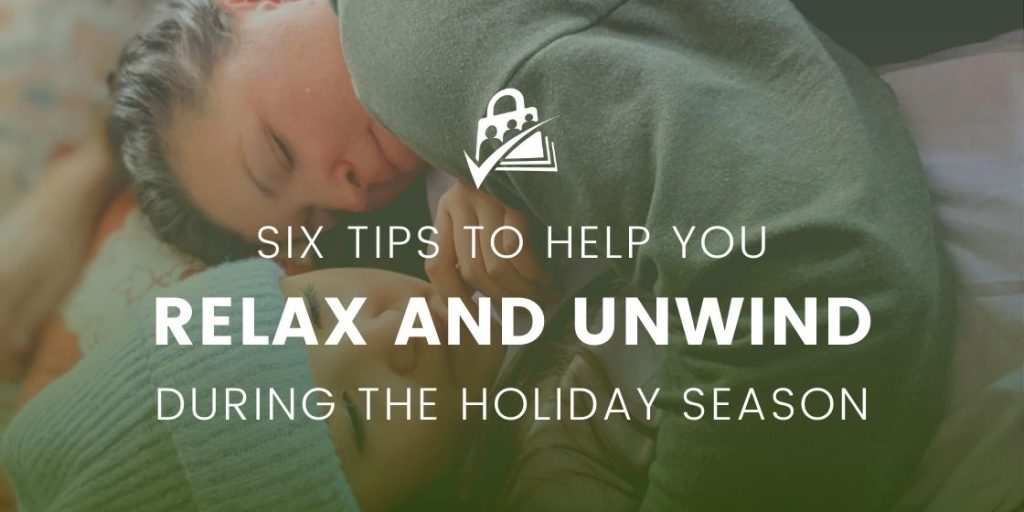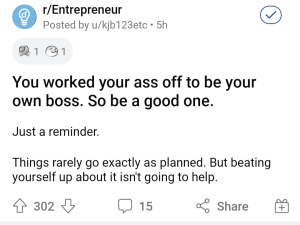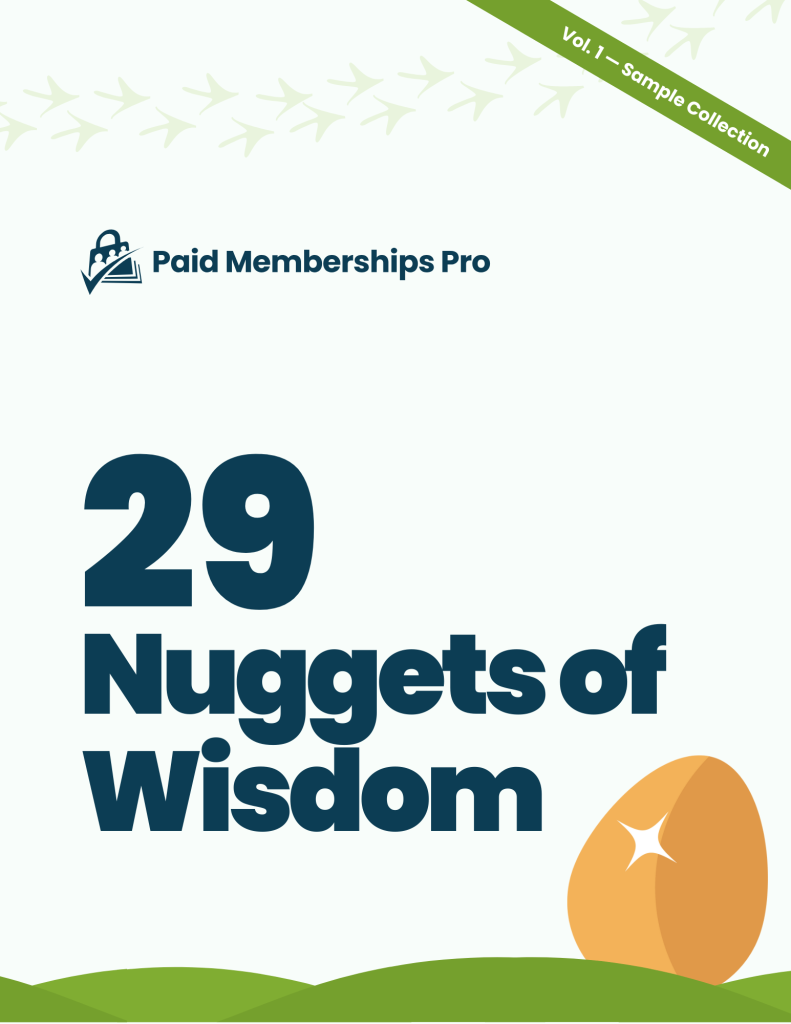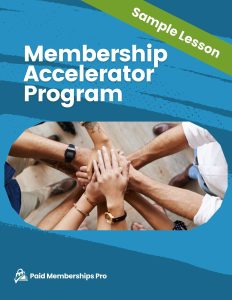A new year is just around the corner. For me, this is a time of awakening: a time to think back on how I spent the last 365 days, and a time to plan for the year ahead.
Many of us are entering a period of celebration and togetherness, and with it comes the expectation that we should stop working and start relaxing.
But how do you temper that entrepreneurial fire burning within you—how do you ignore the drive and persistence that have been your most important assets this year?
This guide covers proactive approaches to relax and unwind during the holidays so that you can:
- Have the right mindset for “holiday mode”
- Develop a schedule that is both relaxing and productive
- Power up your overall wellbeing as a human and as a creator

Give yourself permission to take time off.
One of my biggest personal issues is self-judgment. Specifically, I judge myself for doing a “life” activity when I have a backlog of “work” activities. It’s the worst kind of FOMO you can imagine.
As I write this post, our family is already knee-deep in holiday prep. I have spreadsheets for gifts to be purchased and for gifts already in hand. I have handwritten lists of groceries to stock up on and on what date, along with meals planned for the days our family is visiting.
On the work front, I’m handling time-off schedules for our team of 15 people. We’re wrapping up Q4 projects, and starting to plan ahead for Q1 2022. Jason and I recently reviewed and distributed a profit sharing bonus to our team. I’m also setting up tax accounts in two new states for US-based members onboarding this month and next.
Every work thing I do right now costs me time I need to keep my life things on track—and vice versa.
You can tackle this situation through the beautiful concept of permission.
During this holiday break, practice the art of giving yourself permission to be in the moment. This subtle mindset shift is infinitely freeing. When I catch myself in a moment of judgment, I say (outloud) “be here now”, a phrase I learned from the book of the same name by Ram Dass, an American yogi and spiritual teacher.
When you’re having a lazy breakfast with your kids next week, don’t judge yourself for having work thoughts. You have permission to be here now and to enjoy this moment. Work can wait.
You worked hard to be your own boss. So be a good one.
Jason shared this post from the /r/Entrepreneur subreddit. And it’s a great piece of wisdom to share with you all, too.

Part of the leadership role is modeling good behavior. Working when you are supposed to be on holiday is not good behavior. What’s worse, you inadvertently draw your team members into work-related conversations while they are supposed to be on leave.
Be a good boss (to your team and yourself). A good boss knows that burnout is a very real, very serious problem. A good boss understands the value of rest. If you struggle to relax because you feel an obligation to work, remind yourself that your boss (you) needs you to unwind this week. And you’ll be an even better team member when you come back refreshed.
Newsflash: No one else wants to work.
I firmly believe that over the holidays:
- Everything is naturally slower
- No one wants to work
- Your customers don’t want to hear from you
It is very hard to get anything done in these weeks that requires input from other people. The week between Christmas and New Year’s is the best time to not work because no one else wants to work, either. Think of this time as an unwritten social contract: I won’t work if you won’t work. Deal. 🤝
Pushing work during the week that everyone is unwinding doesn’t give you an advantage. It makes you look like a workaholic with no personal life.
Know Your Work Triggers
More commonly used in emotional and trauma counseling, the APA broadly defines a “trigger” as “a stimulus that elicits a reaction”.
To keep yourself in “holiday mode” you need to understand and intercept the moment when you feel triggered to work. Better yet, make a list of your triggers now and prepare your environment to reduce the chance of being triggered.
Some of the most common work triggers are:
- Time of day: You regularly do a specific work task at a specific time or day.
- Location: You work a specific desk in a bedroom, home office, or den.
- People: The people on your team draw you into work.
- Technology: The sight of your phone or closed laptop make you think about work.
I learned the concept of a prepared environment through my children’s Montessori school. In the Montessori classroom, the environment is thoughtfully arranged, organized, and stocked. For example, all the tables and chairs are appropriately sized for children, there is open floor space for large projects, and every material a child may need throughout their day is easily within reach. The environment is free of roadblocks and conducive to learning.
What does an environment conducive to relaxation look like? How can you remove the roadblocks that stop you from unwinding?
Taking our list of triggers above, here are a few suggestions for preparing your environment:
- Time of day: Make sure you’re “busy” doing non-work things.
Schedule a family pancake breakfast on the morning you usually have an all-team meeting. Plan to drive around and look at Christmas lights on the evening you usually clear your email inbox. - Location: Change your scenery.
Can you move your furniture or lock the door and lose the key (metaphorically) for the space where you work? Find a way to change the layout of the space where you usually work and replace them with non-work things. Put your desk chair in a closet and replace it with your yoga mat or a comfy reading chair. Put a sign on the door to your locked office that says “Closed For The Holidays”. Find a way to visually and physically change the space that triggers you to work. - People: Log out of social networks, team chatrooms, and turn on your out of office autoresponder.
If everyone is properly committed to the social contract of not working, this trigger may naturally work itself out over the holidays. In general, social media conversations are less work-focused and more fun. Be intentional in tuning out work chatter, wherever it is most often presented to you. - Technology: Put your computer/tablet/headset/monitor in a closet and walk away.
There is deep truth in the phrase “out of sight, out of mind”. If your trigger is a work device, maybe you can live without it for the next week or two? Try to keep these distracting devices out of the common areas you spend your time.
If you have to work, use your time wisely.
After everything you’ve learned so far—other people don’t want to work, model good behavior, be a good boss—maybe you still want to work a bit. I get it. Quiet times can be some of the most productive times.
If you simply have to work, focus your time on the business instead of in the business. And try to only do solitary work. The things that don’t require input from other people.
If you find yourself drawn to work over the holidays (maybe your kids are heads down playing Minecraft or your spouse is sleeping off a food coma), use the time to reflect and prospect.
Gather Information
The dawn of a new year is both a beginning and an end. It’s an ideal time to reflect on how the past year went for the business. But also to reflect on how the past year went for you as an individual.
- What was a hypothesis that informed your actions in the past 12 months? What was the outcome? What information did you learn that can help you make better assumptions for the coming year?
- Make a list of the awesomely amazing accomplishments you had. This applies to your business metrics, any KPIs you track as a team, and also as a more personal reflection. What do you feel happier about now than you did back in January?
- Who were the most influential people in your life this year? In the words of motivational businessperson Jim Rohn, “You’re the average of the five people you spend most of your time with.” Spend time reflecting on the people around you and evaluate whether their influence was positive or possibly negative. As a bonus effort, identify a few colleagues or mentors that you want to communicate with more (i.e. be more positively influenced by) in the year ahead.
Hypothesize, Decide, Act.
Reflecting on the past year gives you overflowing buckets of data and information. With this in mind, what are some ways you can 1) add value for your customers and 2) outsmart your competition?
For me, this creative planning stage is a super fun place to hang around in. I love problem solving and coming up with new ideas. The hard part for me is focusing on the right things at the right time, and ignoring the fun things that I want to work on because… they’re fun.
When you’re operating in the hypothesis stage, remember that no idea is a bad idea. The worst questions are the ones that are never asked. And then insert more heartfelt greeting-card-worthy messages right here.
You can’t stay in the ideation phase forever, so at some point decide on a few key goals. Because this isn’t an article about goal setting so here are a few links on the topic:
- How to write SMART goals by Kat Boogaard, a contributing writer at Atlassian
- How can I set compelling goals? by Tony Robbins
- Forget About Setting Goals. Focus on This Instead by James Clear
- The Big Secret About Goal Setting by David Allen
- How to Manage Your Goal Hierarchy with Angela Duckworth and Steven D. Levitt
When that ball drops at midnight and Ryan Seacrest welcomes us all into 2022, you can confidently sip your bubbly and smile. No one will fault you for taking time to work over the holidays if the end result is a thoroughly researched set of actionable goals for the year ahead.
Not working is working.
It isn’t a phenomenon that every time I take off work for a week and really disconnect, I get great ideas for work. I’m talking about ideas that materially change the nature of our business.
If I could stuff one more goofy anecdote into this article, it’s that “absence makes the heart grow fonder.” In the context of business, this means that a little distance helps you see things differently, dare I say more optimistically?
Taking a real break from work frees your mind to think about things in a new way. You aren’t affected by a noisy customer pulling you into their “urgent issue” or the team member looping you into their important project.
When you step back you can assess things at a 100 foot view, or any distance you choose, in a way that just isn’t possible when you’re operating in the weeds.
The longer the time away the better. A long drive one day might work. A real weekend off might work. But in my experience, the best stuff comes after being completely away for at least 3 days.
Advice From Other Founders
I asked the twittersphere if they had any tips to add. Here are a few additional insights to chew on:
“Spend more time than you feel comfortable reflecting on the year and prepping for next. It’s actually quite freeing.
Also take time to do creative gift giving for your team — they deserve it and it’s good for recouping from work stress.”
Matt Cromwell
“Take a vacation from your mobile devices.
Spend a few hours with them in a completely different room and you’ll see how much anxiety just having them in your pocket creates.”
Ross Johnson
And here’s a whole section about reducing meal-prep stress around the holidays.
“Thanksgiving for us is all about the food. Christmas is all about treats: homemade cookies, professionally made pastries and chocolates. I bake a ham or turkey for myself when I get home from visiting the vegetarians.”
Kathy Drewien
“Sometimes, like this year, I order most (if not all) of our Christmas dinner from somewhere like Omaha Steaks. Not having to prep all of a holiday meal while still being able to enjoy good food makes the day more enjoyable.
Christi Nickerson
The only dishes I have to make this year are Mac & Cheese and Green Beans — because Omaha Steaks was out of their green beans with butter sauce :-(”
“Life hack: teach your kids how to cook. [My kids] have been doing Christmas dinner for a good 5 years now.”
Andrea Rennick
“We have a grazing day on Christmas Eve—the day we can celebrate at home. Eggs and cinnamon rolls in the morning, and grazing boards in the afternoon and evening. My kids love a grazing board for dinner and will often eat more healthy options than they realize!
Our grazing boards are mostly kid-friendly stuff with some acquired taste things added in. Several kinds of cheeses, pepperoni, salami, prosciutto, speck, several salty-crunchy things (multiple crackers, pretzels, salted. nuts, goldfish), sliced apples, small bunches of grapes, and halved clementines, cut veggies (carrots, broccoli, colorful peppers). I’ll often add a small dish of peanut butter with a small spreader knife and a small dish of hummus with a spoon for scooping.”
Katie Richards
“I have made a homemade lasagna and put it in the freezer in the past. If I want the feel of homemade, but none of the stress that week, I work ahead.”
Courtney Robertson
There’s no way you’ll regret a little relaxation.
It’s easy to get sucked into never-ending work. I personally attach a lot of my value to my productivity—I can’t rest my feet at night without having moved a handful of items into the “done” column.
The 6 ideas I shared here help me lead a more balanced life as an entrepreneur. And I really hope that these ideas will help you relax during the holidays, too.
If you can actually relax you’ll come back with renewed vigor and have an even better 2022! #NoRegrets




